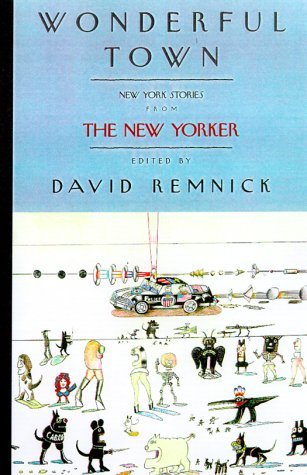I haven’t done tags in a while but I came across this one at Hamlette the Dame’s blog The Edge of the Precipice The BBC doesn’t think people have read more than 6 of the books on the list below. I thought it would be fun and interesting to find out just how many of these have been read by those in the book blogosphere. Here are the rules which I’m bending just a little bit:
1. Be honest.
2. Put an asterisk next to the ones you have read all the way through (I’m highlighting them in red). Put an addition sign next to the ones you have started (I’m highlighting them in green).
3. Tag as many people as there are books on the list that you have read (I’m leaving it open to whoever wants to do this).
Here’s the list:
1. Pride and Prejudice– Jane Austen
2. Gormenghast Trilogy– Mervyn Peake
3. Jane Eyre – Charlotte Brontë
4. Temple of the Golden Pavilion – Yukio Mishima
5. To Kill a Mockingbird – Harper Lee
6. The Story of the Eye – George Bataille
7. Wuthering Heights – Emily Brontë
8. Nineteen Eighty Four – George Orwell
9. Adrift on the Nile – Naguib Mahfouz
10. Great Expectations – Charles Dickens
11. Little Women – Louisa May Alcott
12. Tess of the D’Urbervilles – Thomas Hardy
13. Catch 22 – Joseph Heller
14. Rhinoceros – Eugene Ionesco
15. Baron in the Trees – Italo Calvino
16. The Master of Go – Yasunari Kawabata
17. Woman in the Dunes – Abe Kobo
18. The Catcher in the Rye – JD Salinger
19. The Feast of the Goat – Mario Vargas Llosa
20. Middlemarch – George Eliot

21. Gogol’s Wife– Tomasso Landolfi
22. The Great Gatsby – F. Scott Fitzgerald
23. Magic Mountain – Thomas Mann
24. War and Peace – Leo Tolstoy
25. Ferdydurke – Gombrowicz
26. Narcissus and Goldmund – Herman Hesse
27. Crime and Punishment – Fyodor Dostoyevsky
28. The Grapes of Wrath – John Steinbeck
29. Alice in Wonderland – Lewis Carroll
30. The Wind in the Willows – Kenneth Grahame
31. Anna Karenina – Leo Tolstoy
32. The Jungle – Upton Sinclair
33. Tom Sawyer / Huck Finn – Mark Twain
34. Emma – Jane Austen
35. Robinson Crusoe – Daniel Defoe
36. Delta Wedding – Eudora Welty
37. The Kite Runner – Khaled Hosseini
38. Naomi – Junichiro Tanizaki
39. Cosmicomics – Italo Calvino
40. The Joke – Milan Kundera

41. Animal Farm– George Orwell
42. Labyrinths – Gorge Luis Borges
43. One Hundred Years of Solitude – Gabriel Garcia Marquez
44. A Prayer for Owen Meaney – John Irving
45. Under My Skin – Doris Lessing
46. Anne of Green Gables – L. M. Montgomery
47. Far From The Madding Crowd – Thomas Hardy
48. Don Quixote – Miguel Cervantes
49. Lord of the Flies – William Golding
50. Absalom Absalom – William Faulkner
51. Beloved – Toni Morrison
52. The Flounder – Gunther Grass
53. Dead Souls – Nikolai Gogol
54. Sense and Sensibility – Jane Austen
55. My Name is Red – Orhan Pamuk
56. A Dolls House – Henrik Ibsen
57. A Tale Of Two Cities – Charles Dickens
58. Brave New World – Aldous Huxley
59. The Idiot – Fyodor Dostoevesky
60. Love In The Time Of Cholera – Gabriel Garcia Marquez

61. Of Mice and Men – John Steinbeck
62. Lolita – Vladimir Nabokov
63.Leaves of Grass – Walt Whitman
64. Death on the Installment Plan – Louis-Ferdinand Celine
65. The Count of Monte Cristo – Alexandre Dumas
66. On The Road – Jack Kerouac
67. Jude the Obscure – Thomas Hardy
68. Pedro Paramo – Juan Rulfo
69. Midnight’s Children – Salman Rushdie
70. Moby Dick – Herman Melville
71. Oliver Twist – Charles Dickens
72. Dracula – Bram Stoker
73. The Metamorphosis – Kafka
74. Epitaph of a Small Winner – Machado De Assis
75. Ulysses – James Joyce
76. The Inferno – Dante
77. Swallows and Amazons – Arthur Ransome
78. Germinal – Emile Zola
79. To the Light House – Virginia Woolf
80. Disgrace – John Maxwell Coetzee

81. A Christmas Carol – Charles Dickens
82. Zorba the Greek – Nikos Kazantzakis
83. The Color Purple– Alice Walker
84. The Box Man – Abe Kobo
85. Madame Bovary– Gustave Flaubert
86. A Fine Balance – Rohinton Mistry
87. The Stranger – Albert Camus
88. Acquainted with the Night – Heinrich Boll
89. Don’t Call It Night – Amos Oz
90. The Faraway Tree Collection – Enid Blyton
91. Heart of Darkness – Joseph Conrad
92. The Little Prince – Antoine De Saint-Exupery
93. Gravity’s Rainbow – Thomas Pychon
94. Memoirs of Hadrian – Marguerite Yourcenar
95. A Confederacy of Dunces – John Kennedy Toole
96. Things Fall Apart – Chinua Achebe
97. The Three Musketeers – Alexandre Dumas
98. Hamlet – William Shakespeare
99. Faust – Johann Wolfgang von Goethe
100. Metamorphosis – Ovid
So there you have it! I’ve read 40 (started 3 – I wonder if I will ever go back and finish those?). There are 24 on the list that I’ve never heard of. I would be curious as to how the list was established, also. There is no Hemingway and The Adventures of Tom Sawyer and The Adventures of Huckleberry Finn are on the list as one book (I counted them as two).
How many have you read? I’m guessing most of the book bloggers I know have read more than 6.






